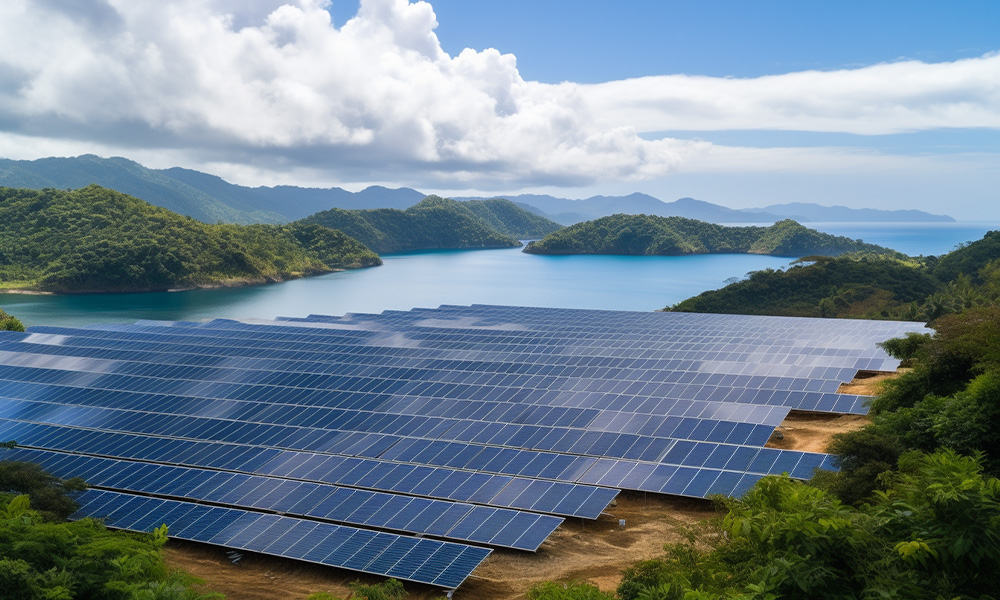Investment in renewable energies increased “exponentially” in Latin America over the past decade, which will allow its wind and solar market to double by 2027 compared to the current level, according to a report released Wednesday in Panama.
“Measures are being taken (often faster than we think) and momentum is being generated towards exponential change in our energy systems,” says the report “Latin American Successes in the Energy Transition,” prepared by the Zero Carbon Analytics research center.
“Some countries are moving forward by taking significant steps towards decarbonization while also building new industries and creating jobs, reducing dependence on energy imports and protecting consumers from volatile fossil fuel prices,” it adds.
The study was released as part of “Latin America and the Caribbean Climate Week,” a forum attended by ministers from the region ahead of the COP28 climate change conference to take place soon in Dubai.
The report delves into the cases of Brazil, Chile and Uruguay, but also highlights progress in Mexico, Guatemala, Costa Rica and Colombia, among other countries.
“More than $15 billion in investment has been allocated each year, totaling almost $167 billion over the past decade,” the study says. “This number is mainly driven by wind and solar investment.”
In seven countries “non-hydro renewable energy already represents more than 30% of installed capacity” and in the region there are some “320 wind and solar projects in the pipeline” of which about “200 are in pre-construction or construction phase.”
Renewable energy investment in the region “has increased exponentially by an average of 10% each year over the past decade, providing nearly 100 GW of wind and solar capacity in 2022,” the study highlights.
The sun and the wind
Brazil has become one of the top 10 generators of solar and wind energy in the world, while Uruguay “has achieved the fastest renewable deployment” and now 98% of its electricity comes from renewables, the report indicates.
It highlights Brazil’s “energy diversification,” which through the introduction of solar energy “has created 960,000 new jobs and helped avoid 40 million tons of CO2 emissions.”
“Electricity production is concentrated among small users. In July 2023, Brazil surpassed two million installed solar photovoltaic systems on roofs, facades and small properties.”
Brazil now has “18,164 operational solar power plants,” but has also boosted wind power generation and has 935 wind farms.
Coal plants
In Chile, renewable energy generation increased from 37% to 55% over the past seven years, mainly due to the addition of more solar energy. The Andean country was responsible for 20% of Latin America’s new wind energy in 2022.
The study highlights that Chile “has made significant progress since the plan was launched in 2019, closing eight coal plants and plans to close or convert nine more plants by 2025.”
For its part, Uruguay began to move away from fossil fuel-based electricity generation in 2005 by approving a National Energy Plan and “a major drought in 2020 made hydroelectric power unreliable, driving further investment in renewables.”
“Uruguay invested over $8 billion in the renewable energy sector [mainly wind], resulting in 98% of electricity now coming from renewables,” the report says.
The meeting in the Panamanian capital brings together some 3,000 delegates from local and national governments, indigenous peoples, civil society and the private sector, and includes a meeting of environment ministers from the 33 countries in the region to adopt a common position for COP28, to be held November 30 to December 12 in Dubai.






